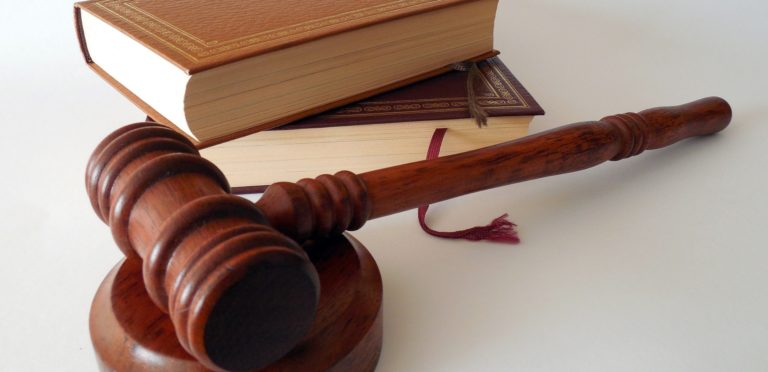You may have heard the term “dismissed” when referring to criminal charges. If you have been charged with a crime in Texas, you may wonder what a dismissal of criminal charges means and how to get the charges dismissed in your particular case.
It is essential to contact a Georgetown criminal defense attorney to discuss your situation and determine how you can get the charges dismissed, dropped, or reduced.
What Does It Mean When Criminal Charges Are Dismissed?
As you may know, not all criminal cases go to trial. In many cases, criminal charges can be dropped or dismissed by the prosecutor, especially if the defendant is represented by a knowledgeable criminal defense lawyer who can convince the prosecutor to dismiss the charges.
In addition, judges have the power to dismiss charges if the state does present sufficient evidence.
The charges can also be dismissed by the court – not the prosecutor – when the prosecutor makes legal errors when handling the criminal charges.
How to Drop or Dismiss Criminal Charges in Texas?
There are several reasons the prosecutor (or court) may drop or dismiss criminal charges. When a defendant is represented by a skilled criminal defense lawyer, they are more likely to convince the prosecutor to get the criminal charges dropped or dismissed.
Some of the most common reasons charges get dropped and dismissed in Texas are:
- Lack of cooperation from the alleged victim. When the alleged victim of the defendant’s criminal conduct refuses to cooperate or does not want to proceed with the charges against the accused (the defendant), the prosecutor may choose to drop the charges due to the lack of evidence.
- Lack of evidence. Even if the alleged victim agrees to cooperate with the prosecution, the prosecutor may still have insufficient evidence to file charges against or convict the defendant. If the prosecutor files criminal charges despite the lack of evidence, the defendant’s criminal attorney may file a motion to get the case dismissed.
- Evidence of innocence. The defendant’s lawyer may present new evidence that refutes the alleged victim’s accusations and proves the defendant’s innocence.
- Fourth Amendment violations. The Fourth Amendment to the U.S. Constitution protects American citizens against illegal searches and seizures by law enforcement. Any evidence unlawfully obtained by the police will be excluded from the criminal case because it would be inadmissible in court. Getting a criminal charge dismissed based on Fourth Amendment violations requires solid knowledge of the law and criminal system, which is why the defendant should be represented by a criminal defense lawyer if they were subject to unlawful searches or seizures.
- The defendant’s cooperation. It is not uncommon for prosecutors to drop or dismiss criminal charges when the defendant is willing to cooperate in the investigation or prosecution of others. In this case, the defendant’s attorney can work out a deal with the prosecutor to reduce the sentence or get the charges dismissed/dropped.
- Procedural errors. Law enforcement and prosecutors are required to follow strict procedures during arrests, interrogations, bail hearings, and other pre-trial phases. When the procedural errors violate the defendant’s rights, the prosecutor may dismiss or drop the charges.
- Insufficient resources. While it may seem that the police and prosecution must have all the necessary resources to solve crimes, that is far from the truth. In reality, prosecutors may dismiss or drop criminal charges if they do not have enough resources to devote to a particular case.
- Criminal complaint errors. When a police officer writes a criminal complaint or another charging document, the document must be signed under oath. State law has strict requirements for what information the criminal complaint must contain. The prosecutor can dismiss or drop the charges when there are errors in the criminal complaint.
- Prosecutor’s discretion. In rare cases, a prosecutor may dismiss criminal charges when there are extenuating circumstances. For example, the prosecutor can use discretion to dismiss a minor charge when the defendant has never been arrested or convicted of any crimes before. However, a prosecutor may dismiss criminal charges without prejudice, which means the charges can be re-filed at a later date.
Do Dismissed Criminal Charges Appear on Criminal Record?
When you get arrested for any criminal offense, your arrest is reported to the Texas Department of Public Safety records. The arrest would appear on your criminal record even if the criminal charges were never filed, which is why any person performing a background check will most likely see the arrest on your record.
In order to be dismissed, criminal charges have to be filed. Even if the charges are dismissed, they are not automatically expunged from your criminal record.
Under the Texas Code of Criminal Procedures Art. 55.01, you can expunge all of the records related to your arrest if you were arrested for a misdemeanor or felony and subsequently:
- Pardoned
- Acquitted at trial
- Not convicted and not placed on community supervision
If your criminal charges have been dropped or dismissed, do not hesitate to contact a knowledgeable attorney to help you get the charges expunged as soon as possible.
Speak with a Criminal Defense Attorney Near You
If you have been arrested for a misdemeanor or felony in Texas, you need a skilled criminal defense attorney to review your particular case and determine if the charges can be dropped or dismissed.
Your criminal defense attorney will represent your best interests to convince the prosecutor to drop or dismiss the criminal charges. Even if the charges cannot be dismissed, your lawyer will fight on your behalf to get the sentence reduced to protect your freedom.
A Georgetown criminal defense attorney will identify the strengths and weaknesses in the prosecutor’s case and suppress any evidence that was obtained in violation of your constitutional rights.
Schedule a free case evaluation with our attorneys at The Law Office of Brett H. Pritchard. Discuss your case with our lawyers by calling 254-501-4040.
OTHER READING







